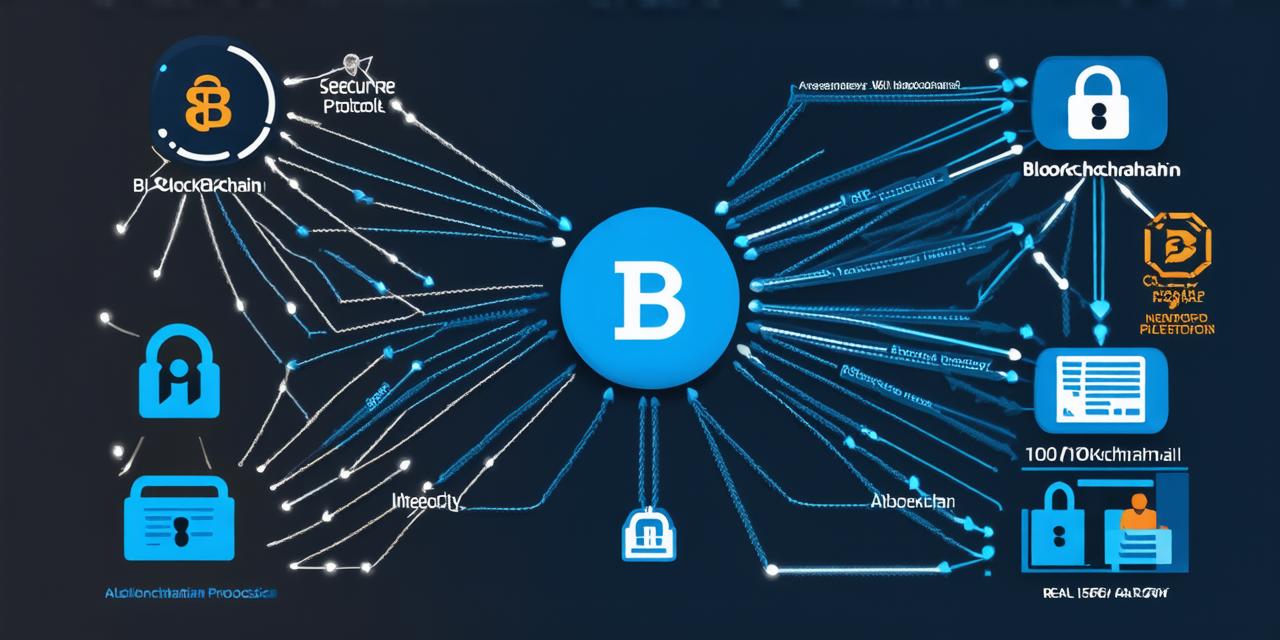What is blockchain in computer
Blockchain technology is a decentralized and distributed ledger that records transactions across multiple computers. It was initially designed for the digital currency Bitcoin, but its potential applications go far beyond cryptocurrencies. Blockchain has the ability to revolutionize industries such as finance, healthcare, and supply chain management by providing transparency, security, and efficiency in data storage and sharing. In this article, we will explore what blockchain is, how it works, and its potential impact on various industries.
What is Blockchain?
Blockchain is a digital ledger that contains a growing list of records, called blocks, linked together by cryptography. Each block contains a cryptographic hash of the previous block, a timestamp, and transaction data. This creates an immutable and tamper-proof record of transactions, which can be verified by anyone with access to the network.
Blockchain was first introduced in 2008 by an anonymous person or group using the pseudonym Satoshi Nakamoto. The technology was designed to enable secure and decentralized digital transactions without the need for intermediaries such as banks. Since then, blockchain has evolved into a powerful tool for data storage, sharing, and management in various industries.
How does Blockchain work?
Blockchain works through a consensus mechanism, which ensures that all participants in the network agree on the validity of each transaction and block. There are several consensus mechanisms used in blockchain networks, including proof-of-work (PoW), proof-of-stake (PoS), delegated proof-of-stake (DPoS), and others.
In PoW, miners compete to solve complex mathematical problems to validate transactions and create new blocks. They are rewarded with cryptocurrency for their efforts. In PoS, validators are chosen based on the amount of cryptocurrency they hold in their wallets. DPoS combines elements of both PoW and PoS by allowing validators to be elected by other validators.
Once a block is created, it is broadcast to all participants in the network for verification. If the block is deemed valid, it is added to the existing blockchain, creating an immutable and tamper-proof record of transactions.
Advantages of Blockchain
Blockchain technology has several advantages that make it suitable for various industries:
- Decentralization: Blockchain is decentralized, meaning that there is no central authority controlling the network. This eliminates the need for intermediaries and reduces the risk of fraud and manipulation.
- Transparency: All participants in the blockchain network have access to the same information, creating a transparent and auditable system.
- Security: Blockchain uses cryptography to secure transactions and prevent tampering. This makes it resistant to hacking and other forms of cyber attacks.
- Efficiency: Blockchain can process transactions quickly and efficiently, without the need for intermediaries.
- Immutability: Once a transaction is recorded on the blockchain, it cannot be changed or deleted. This provides an immutable and tamper-proof record of data.
Applications of Blockchain
Blockchain technology has several potential applications across various industries, including:
- Finance: Blockchain can enable secure and efficient payment processing, without the need for intermediaries such as banks. It can also facilitate the issuance and trading of digital assets such as cryptocurrencies and securities.
- Healthcare: Blockchain can provide a secure and decentralized platform for storing and sharing medical records, while maintaining patient privacy and confidentiality.
- Supply chain management: Blockchain can enable transparency and traceability in the supply chain, from production to delivery, by providing an immutable record of transactions and product movements.
- Voting systems: Blockchain can provide a secure and transparent voting system that eliminates fraud and ensures the integrity of elections.
- Identity verification: Blockchain can enable secure and decentralized identity verification, without the need for intermediaries such as government agencies or social media platforms.
Real-life Examples of Blockchain in Action
Several companies and organizations have already implemented blockchain technology in various industries. Here are some real-life examples:
- IBM Food Trust: IBM has developed a blockchain-based platform for the food industry, which enables transparent and secure sharing of information about food products, from production to consumption. This helps to reduce food waste and improve food safety.
- Maersk TradeLens: Maersk has developed a blockchain-based platform for the supply chain industry, which enables real-time tracking and visibility of shipments, from origin to destination. This helps to reduce costs and improve efficiency in the supply chain.
- MediLedger Project: The MediLedger Project is a blockchain-based platform for the healthcare industry, which enables secure and transparent sharing of medical records between healthcare providers. This helps to improve patient care and reduce medical errors.
- Provenance: Provenance is a blockchain-based platform for the fashion and apparel industry, which enables transparent and secure tracking of product movements, from production to consumption. This helps to reduce environmental impact and improve product sustainability.
- BitPesa: BitPesa is a cryptocurrency exchange that uses blockchain technology to enable secure and efficient payment processing in Africa. It has enabled access to financial services for millions of people who previously had no bank accounts.

Conclusion
Blockchain technology has the potential to revolutionize industries such as finance, healthcare, and supply chain management by providing transparency, security, and efficiency in data storage and sharing. Its decentralized and distributed ledger architecture eliminates the need for intermediaries and reduces the risk of fraud and manipulation. Blockchain has already been implemented in several real-life examples, and its potential applications are vast and varied. As the technology continues to evolve and mature, we can expect to see more innovative uses of blockchain across various industries.



